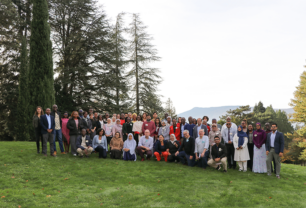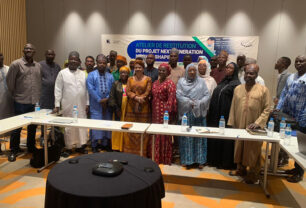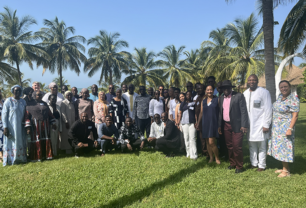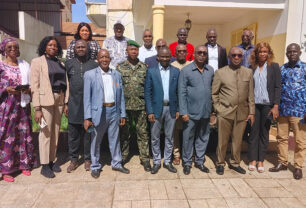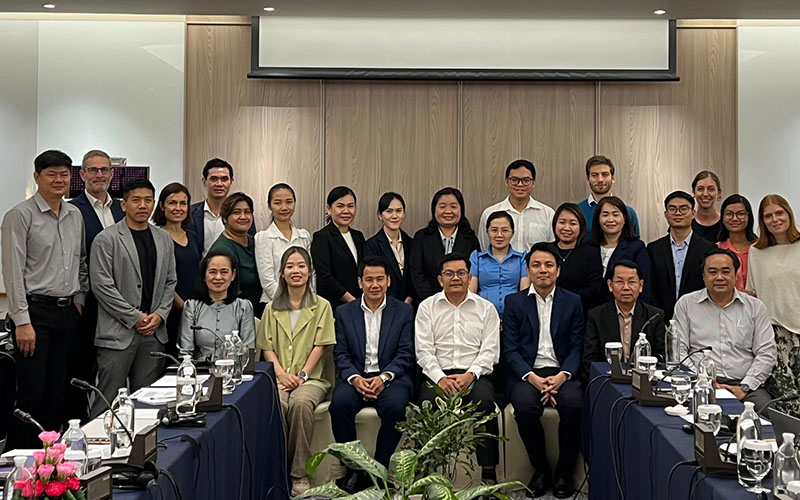
This event brought together for the first time the ten fellows as well as three of the five mentors, one of whom participated online, who will work with them throughout the program. The workshop was chaired by Dr Phonepadith, Director General of the Department of Communicable Disease Control (DCDC), Dr Vongsamphanh, Deputy Director General of the Department of Livestock and Fisheries (DFL), and Dr Thi Ha, Head of Southeast Asia for Fondation Mérieux. Participants also had the opportunity to meet Cashel Glesson, First Counsellor at the UK Embassy.
The main aim of the two-day workshop was to draw up a work plan for the program’s fellows, with the support of their mentors. During this workshop on antimicrobial resistance (AMR), the fellows were able to present their professional experiences and their expectations for the program, enabling the mentors to gain a better understanding of the issues involved in supporting them. The fellows benefited from feedback and advice from the previous class, who had followed the program in Phase I. As Dr Phonepadith pointed out, “the Fellowship program is designed to support the professional development of practitioners to build the capacity of the AMR workforce”.
The following day, the mentors visited each fellow’s workplace to gain a better understanding of their daily tasks and the challenges they face. This information is essential for drawing up a realistic work plan for the coming year.
These visits enabled the mentors to immerse themselves in their fellows’ professional context, identify potential obstacles and discuss strategies for overcoming them. This approach is designed to ensure that the work plan is not only ambitious, but also achievable, considering the resources available and the constraints specific to each working environment. Dr. Phonepadith also recalled that “this enables institutions or government personnel to better understand the different aspects of AMR surveillance” and expressed his hope that “this workshop contributes to the creation of a global community of AMR leaders and experts who can contribute significantly to the national response to AMR.”
The workshop concluded with a presentation of the fellows’ work plans, during which they were once again able to exchange views with the mentors and answer their various questions. Following the seminar, the fellows will continue their work on their respective projects, benefiting from the ongoing support of the mentors throughout the program.
About the project
Phase 2 of the Fleming Fund Fellowship is a professional development program focused on the needs of practitioners and senior members of government institutions. It focuses on antimicrobial resistance (AMR) initiatives in the countries supported. The project supports individuals within AMR surveillance systems in human and animal health disciplines, following a “One Health” approach.
The Mérieux Foundation, which is responsible for managing the project, offers two types of fellowship: professional fellowships, which focus on developing technical skills, and policy fellowships, which focus on promoting leadership in antimicrobial resistance (AMR) and good governance in the countries supported by the Fleming Fund.


